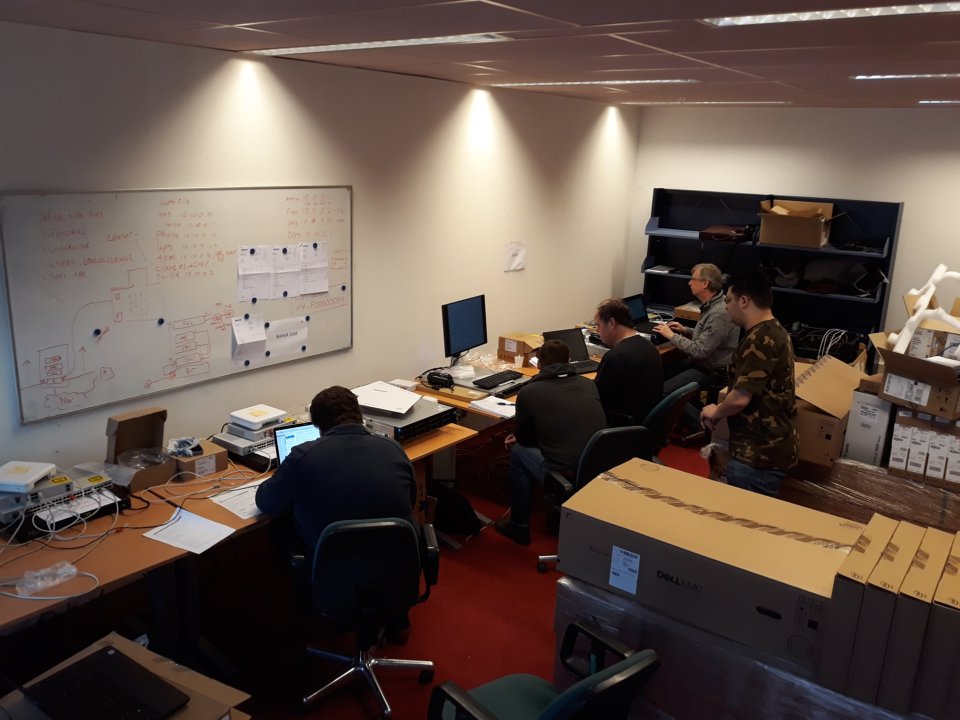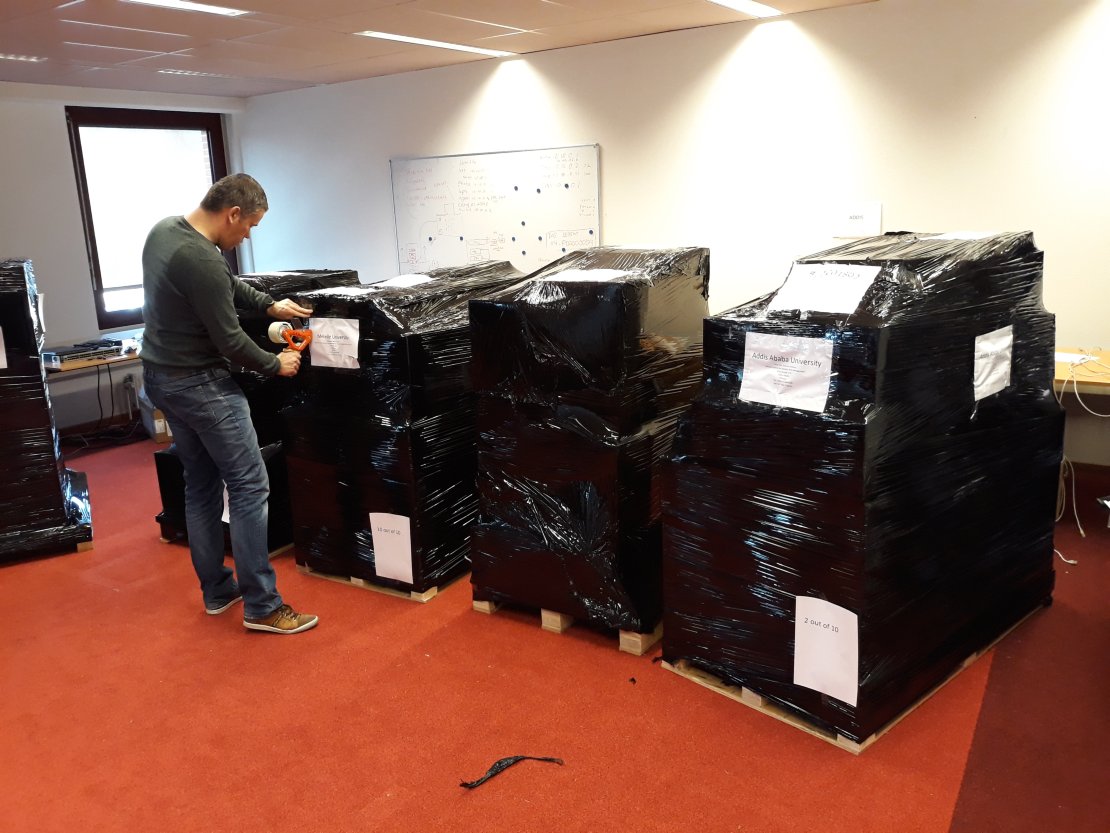In order to facilitate the education and research activities within the EENSAT project, together with partner universities fully equipped computer clusters, suited to the individual needs of each of the universities, have been designed. The design was a truly iterative process, involving IT and network specialists from each of the universities to ensure that the equipment would comply to the needs expressed.
In general each of the computer clusters is equipped with 20 computers for student use, 1 computer for the lecturer and 5 high-end laptops for dedicated (fieldwork) activities. All systems are operating under Windows10 and have Microsoft Office as generic software tools and all systems are connected to the University network, both wireless and through network cables. Next to this there is a dedicated server, a large capacity network attached storage (NAS) also hosting the digital learning environment, an A3 flatbed scanner and an A0 printer / plotter / scanner.

Figure 1: IT staff at ITC configuring the servers and network attached storages
All equipment was purchased by University of Twente, faculty of Geo-information Science and Earth Observation (ITC) and a team of IT specialists has pre-configured all equipment and documented the full installation procedure for the “plug and play” configuration designed and implemented. The equipment was collected during the beginning of March and was send by air cargo to Addis Ababa, over 15.2 m3, having a total weight of 1470 kg. Partner Universities and their liaison offices in Addis Ababa have been involved in clearance of all equipment.
Some additional software and equipment will be purchased at a later stage, e.g. software allowing photogrammetric training and drones for aerial data acquisition.

Figure 2: Preparing the equipment for shipment to Ethiopia; in total 10 parcels have been shipped





